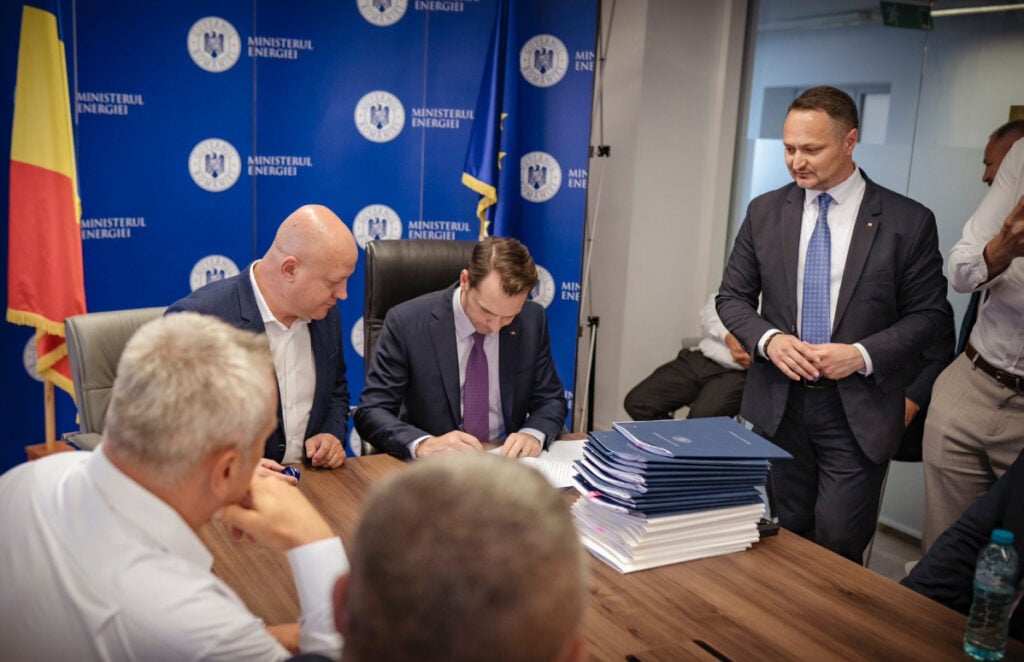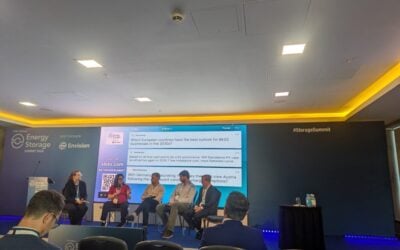
A 204MW battery energy storage system (BESS) project in Romania can progress after the government said it did not need to go through an environmental impact assessment (EIA).
The BESS project from developer Electric Spot has been waved through the EIA process by the National Agency for Environmental Protection (Agenția Națională pentru Protecția Mediului, or ANPM), part of the Ministry of the Environment, in a decision dated 9 July, 2024.
Electric Spot is looking to build the 204MW project just outside the village of Rosiori, in the Valea Vinului commune in Satu Mare county, and connect it to the electricity grid. The ANPM said it did not need an EIA as it helped the country decarbonise and did ‘not significantly affect other EU environmental objectives’.
Local reports say that Electric Spot is planning to put the project into commercial operation in 2028, and that its investors are local individuals Cristian Barbu and Mircea Dorin Todea. The project would be many times larger than the largest BESS online in Romania today, a 6MW/24MWh system from developer and independent power producer (IPP) Monsson (Premium access article).
Try Premium for just $1
- Full premium access for the first month at only $1
- Converts to an annual rate after 30 days unless cancelled
- Cancel anytime during the trial period
Premium Benefits
- Expert industry analysis and interviews
- Digital access to PV Tech Power journal
- Exclusive event discounts
Or get the full Premium subscription right away
Or continue reading this article for free
Huawei technology to be deployed for the project
The ANPM’s decision document revealed that the project will utilise BESS and power conversion system (PCS) technology from China-headquartered electronics firm Huawei.
Specifically, it will use containers with Huawei Smart String ESS LUNA2000-2.0MWH-4HL batteries combined with its Luna 2000-200KTL-HO inverters.
Huawei has recently emerged as one of the largest BESS providers globally, in the top five according to research last year by Wood Mackenzie.
Government of Romania increases financial support for storage
The new coincides with the government increasing its financial support for energy storage via two schemes, both using funds from the EU’s Modernisation Fund. Those are in addition to a scheme which uses a separate EU fund, the Recovery and Resilience fund, to support grid-scale storage.
According to local reports, the government plans to allocate funding from the Modernisation Fund to support the deployment of energy storage at wind and solar PV plants covering 25% of the plants’ output capacity.
Minister of Energy Sebastian Burduja reportedly declared at a conference that Romania’s storage requirement is 4,000MWh, and that half would be covered by BESS and half by pumped hydro energy storage (PHES) technology.
In concurrent news, Minister Burduja also signed 24 financing contracts using money from the ‘Modernisation Fund, Key Program 1: Renewable energy sources and energy storage’, the Ministry announced this week (15 July).
The contracts are for 24 projects which will invest in new renewable capacity for self-consumption by public entities totalling 9.5MW and are worth a combined 68 million RON (US$15 million).
“These projects will not only contribute to increasing green energy production capacity, but will also bring significant benefits to local communities by reducing bills for local public institutions, ensuring energy autonomy and protecting the environment,” Burduja said.
Benficiaries of the US$15 million package include the Ovidius Constanța University, the National Institute for Research and Development in Construction, Urbanism and Sustainable Territorial Development “URBAN-INCERC”, the Slobozia City Hall, the Hațeg City Hall and the town halls of 20 communes from the counties of Iasi, Cluj, Hunedoara, Tulcea, Ilfov, Timiș, Suceava, Olt, Mureș, Constanța, Arad and Neamț.
See the ANPM’s decision document on Electric Spot’s project here (in Romanian).





